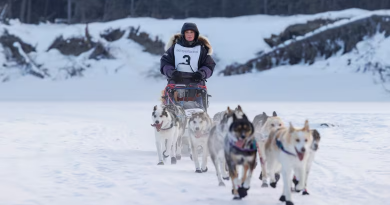Few Finns willing to make sacrifices alone for climate, poll finds

The willingness of people in Finland to compromise their living standards in order to protect the environment is lower than it was ten years ago, according to a report by the Finnish business and policy think tank Eva.
“During the spring parliamentary elections, climate policy in particular received great attention. In this respect, it is therefore surprising that there has been no increase in people’s willingness to compromise on their own living standards,” said Sami Metelinen, Managing Director of Eva.
According to Metelinen, the areas where people are least likely to make changes to their standard of living are in the use of cars and the eating of meat.
Not willing to do it alone
The survey garnered people’s attitudes to the statement “I am ready to lower my standard of living in order to reduce pollution and environmental problems,” with 55 percent of those surveyed agreeing with the statement. This figure remains unchanged compared to the previous measurement, carried out in 2014.
The peak of the readiness to compromise on living standards was in 1992, when three out of four Finns agreed with the statement that they would be willing to make personal sacrifices in order to reduce the impact of climate change.
The 2019 survey also found that it is important for citizens that they do not remain alone in changing their lifestyle, as 61 percent agreed with the statement that “I would be prepared to undertake climatic action if I had the assurance that other citizens would also be involved”.
However, only 18 percent of respondents said they would be willing to make changes for climate action, regardless of what others do.
Economic cycles affect attitudes
According to Eva, which has carried out value and attitude research in the area since 1984, economic cycles also affect people’s attitudes towards the environment. Concern about the environment tends to increase the longer a boom lasts.
This year’s survey does not show such an increase, which Eva attributes to a long recession before the boom.
The results are based on 2,059 responses surveyed from January to February 2019, with a margin of error of 2–3 percentage points. The data was collected via online survey by pollster Taloustutkimus, which says the sample was representative of Finland’s population aged 18-70.
Related stories from around the North:
Canada: Town in Canadian central Arctic to get hybrid solar-diesel power plant, CBC News
Finland: Youth pledge to plant 100 million trees at climate summit in Helsinki, Yle News
Norway: Emissions dropping in EU, but not in Norway, The Independent Barents Observer
Russia: Moscow’s new energy doctrine warns against green shift, The Independent Barents Observer
Sweden: Sweden’s cars pollute more than previously thought, Radio Sweden
United States: Sea levels could rise by up to 2 metres by 2100, new study finds, CBC News



